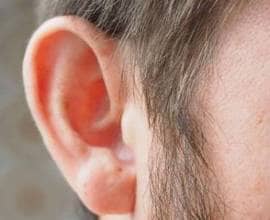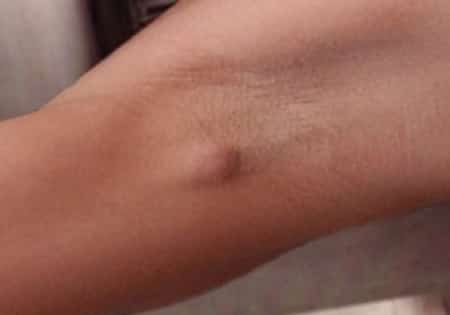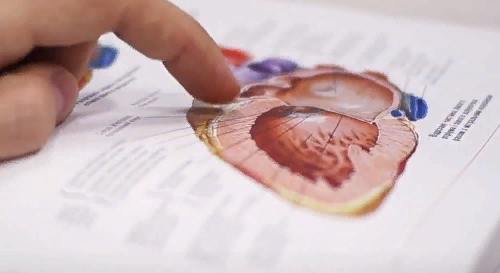It is typical to have swollen lymph nodes while battling an infection or disease. A swollen lymph node in front of the ear should be taken seriously since it might be a sign of a serious underlying medical issue. We’ll talk about the potential causes, symptoms, and remedies for a swollen lymph node in front of the ear in this article.
This page will explain what a swollen lymph node is and how to treat it, whether you’re experiencing it firsthand or are simply seeking information.
Anatomy and Function of Lymph Nodes
The body’s tiny, bean-shaped lymph nodes are essential for filtering things in the lymphatic fluid, such as white blood cells, damaged cells, and pathogens like bacteria and viruses.
Although the body has hundreds of lymph nodes, the neck, armpits, and groin are where they are most noticeable. In order to defend the body from disease and infection, maintain fluid balance throughout the body, and remove waste from cells, the lymph nodes collaborate closely with the immune system and lymphatic system.
Lymph tissue and numerous cell types, such as white blood cells, B cells, T cells, dendritic cells, macrophages, and plasma cells, make up lymph nodes.
Symptoms associated with a swollen lymph node in front of the ear
- Tender or painful area in front of the ear
- Swollen lymph node(s) in front of or behind the ear
- Redness or warmth around the affected area
- Discharge or drainage from the ear
- Fever or chills
- Difficulty swallowing or breathing.
Main causes
- Infections: An infection is one of the most frequent reasons for a swollen lymph node in front of the ear. This includes mononucleosis, the flu, and infections of the salivary gland, ear, and mouth.
- Pimples: A pimple is a typical reason as well. These little lumps, which may be unpleasant and swollen, can vary from whiteheads to acne lesions that resemble cysts.
- Skin cysts: A skin cyst is a tiny bump or sac that contains liquid, air, fat, or other substances. An epidermal inclusion cyst, which may vary in size and be pus-filled, is the most typical form.
- Cancer: In a small percentage of instances, a large lymph node in front of the ear may indicate head and neck cancer or blood cancer. If the lymph node does not go away in 1 to 2 weeks or if the lump is glued to the surrounding tissue and not uncomfortable, it is crucial to contact a doctor.
Risk factors
Smokers, those with chronic diseases, those with poor dental hygiene, and those with bad oral hygiene are more likely to develop enlarged lymph nodes in front of the ear. Swollen lymph nodes may also be caused by cancer, injuries, or infections. Dehydration and obstructions in the salivary ducts both raise the risk of salivary gland infection. Otitis externa may be more likely to occur in those who often swim or who have an excessive amount of moisture in their ear canal. Preauricular lymph nodes that are enlarged might also result from viral conjunctivitis. Individuals may avoid swollen lymph nodes and identify them early by being aware of these risk factors.
Diagnosis
A physical examination to rule out any lumps or bumps in the region is usually the first step in the diagnosis of a swollen lymph node in the front of the ear. In order to determine any underlying medical issues or recent infections that could be the cause of the swelling, they may also get a thorough medical history from the patient. To gain a closer look at the lymph nodes and surrounding tissues, imaging tests like X-rays or ultrasounds could also be used in certain circumstances. To provide a correct diagnosis, other tests or treatments can be required depending on the swelling’s alleged origin.
Treatment options
- The key to therapy is treating the underlying cause, since enlarged preauricular lymph nodes are often an indication of an underlying ailment. Antibiotics for a bacterial infection or antihistamines for allergies may be used in this situation.
- Painkillers: If the enlarged lymph nodes are giving you pain, you may want to try ibuprofen or acetaminophen over-the-counter.
- Warm compresses: By applying a warm compress to the injured region, you may lessen the discomfort and swelling.
- Relaxation and water are crucial for assisting the immune system in battling infections, which may be the root cause of the enlarged lymph nodes.
- Surgery: In very rare circumstances, surgery may be required to remove the troublesome lymph node. Typically, this is only advised in cases where the lymph node is malignant or causing severe pain.
Remember to get medical assistance from a healthcare provider if swollen lymph nodes continue or are accompanied by other unsettling symptoms.
Prevention methods
- Excellent cleanliness may aid in limiting the spread of diseases that might result in enlarged lymph nodes. Avoid sharing personal objects like towels and cutlery, and wash your hands regularly.
- Be vaccinated: Vaccines provide defense against a range of illnesses, including some that might swell lymph nodes. Find out which vaccinations are suggested for you by talking to your healthcare professional.
- Frequent physical activity helps strengthen your immune system and lowers your risk of illnesses that can enlarge your lymph nodes.
- Reduce your stress: Excessive stress may impair your immune system and increase your susceptibility to illnesses.
- Consume a nutritious diet: A diet full of fruits, vegetables, and whole grains may provide your body with the nutrition it needs to maintain a strong immune system.
You may lessen your chance of getting swollen lymph nodes by taking these preventive steps, which will also help you remain healthy. If you do have swollen lymph nodes, be sure to see a doctor to ascertain the underlying reason and obtain the appropriate care.
Is it dangerous?
It’s normal to worry about a large lymph node in front of your ear, but that doesn’t mean it’s always a serious problem. This is a typical reaction to infections in the surrounding tissues. But, in very unusual circumstances, it may indicate cancer or another life-threatening illness. That’s why you need to see a doctor about it right now. Treatment options vary from over-the-counter pain medications to surgical removal, radiation treatment, and chemotherapy, depending on the underlying reason for the swelling. In general, it’s better to get any new lumps diagnosed and treated as soon as possible.
About the Author
Reyus Mammadli is the author of this health blog since 2008. With a background in medical and biotechnical devices, he has over 15 years of experience working with medical literature and expert guidelines from WHO, CDC, Mayo Clinic, and others. His goal is to present clear, accurate health information for everyday readers — not as a substitute for medical advice.








I’ve had a painful swollen preaucular lymph node for almost a year and I’ve talked to my new Dr and my dentist and nobody has paid any mind to it no feeling it no checking my ears absolutely nothing and I’ve had ovarian cancer so I do have a history. Also as a child my lymphnodes under my arms got really swollen. Im extremely concerned and want test to be done but do not know who to talk to that will listen?
Don’t worry Dianna Ryan. You need to find a good doctor.